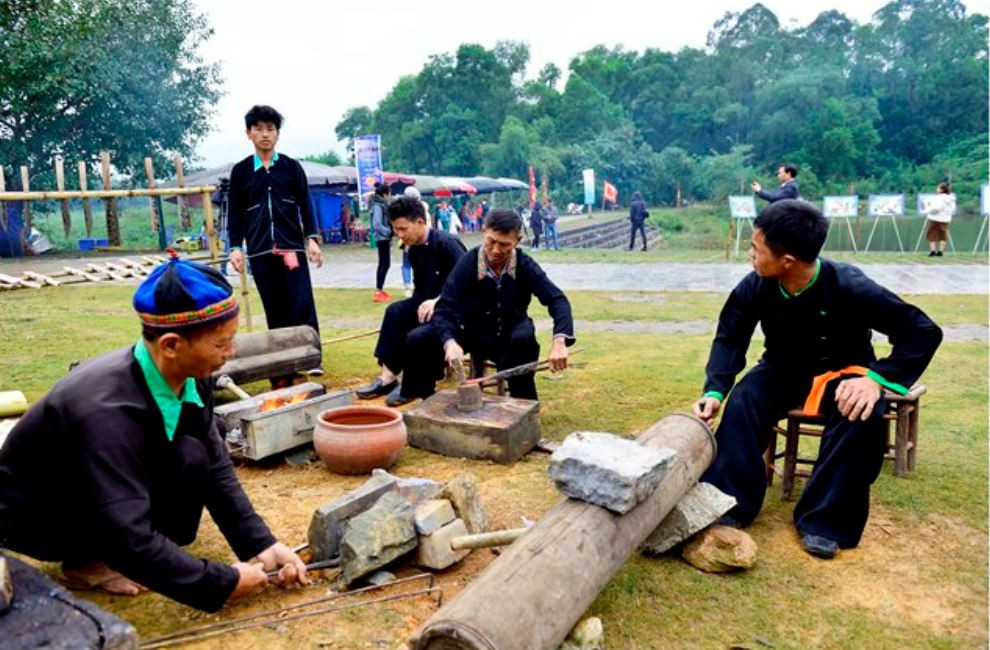
The H’mong people in Dien Bien province have many handicrafts imbued with national culture such as blacksmithing, making musical instruments, weaving, embroidery, and drawing patterns on fabric. Among them, blacksmithing is one of the long-standing traditional professions, associated with the production activities of the H’mong people.
According to Decision No. 1406/QD-BVHTTDL of the Ministry of Culture, Sports and Tourism, the blacksmithing profession of the H’mong people in Dien Bien province is added to the list of National Intangible Cultural Heritage of Vietnam. Restoring, preserving, promoting and developing traditional blacksmithing is an extremely urgent job, not only bringing economic efficiency but also contributing to preserving the unique cultural identity of the H’mong people.
On October 21, within the framework of the Culture, Sports and Tourism Week of Tua Chua district 2023, the People's Committee of Tua Chua district officially held a ceremony to announce and receive the certificate of National Intangible Cultural Heritage for the blacksmith profession of the H’mong people in Dien Bien province.
Since ancient times, the H’mong people have always chosen the highland terrain of the mountains to live in a self-sufficient way. Therefore, they have to find ways to produce agricultural tools and daily items to serve their lives. Today, although life has changed a lot and household items can easily found at markets, many H’mong people still keep the traditional craft of blacksmithing.
In the past, almost every H’mong family had a private forge to make agricultural tools and household utensils. The traditional blacksmithing products of the H’mong people are very diverse. These are tools that are widely used in daily activities and production activities such as knives, axes, sickles, spades, hoes, shovels...
The blacksmithing profession of the H’mong people not only creates practical agricultural tools in life but also contributes to maintaining the unique traditional culture. Currently, in the villages, there are only a few households that preserve the traditional craft of blacksmithing, but the demand for forged agricultural tools is still very high. Therefore, some households still keep blacksmithing, creating agricultural tools to sell at markets.